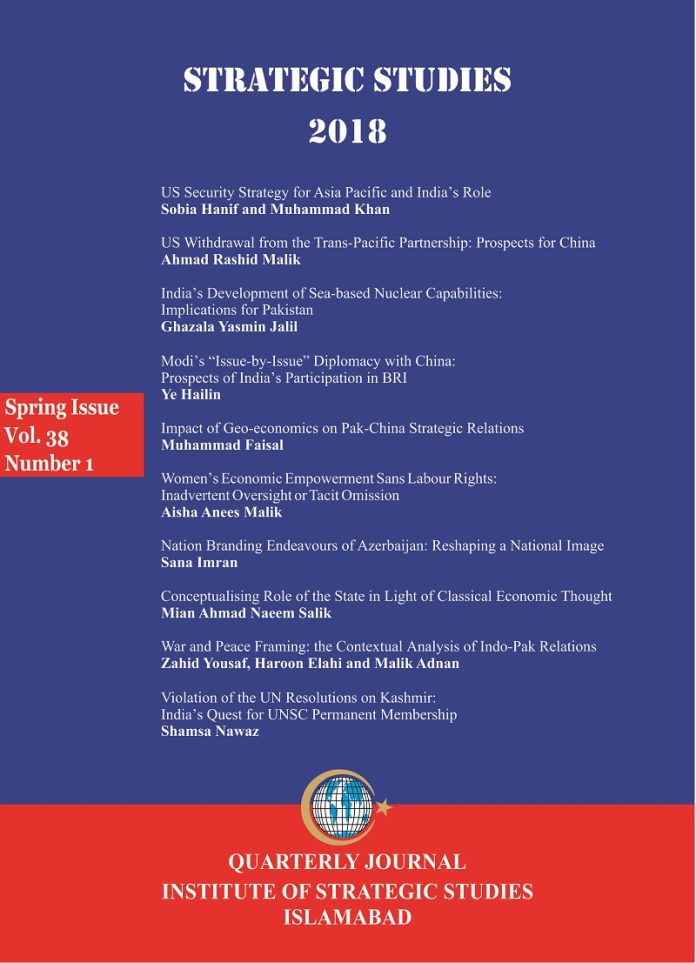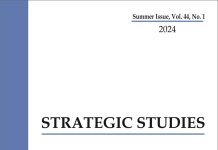Abstract
Following a changeover in the US corridors of power after the election of Donald Trump as President of the US, America’s allies and partners are concerned about the US’s willingness to sustain its leadership role and security commitments in the Asia Pacific region. China’s rising military power and the Trump administration’s decision to withdraw from the Trans Pacific Partnership (TPP); considering the economic leg of the ‘rebalancing strategy.’ This development has further contributed in increasing regional anxieties. Viewed through the lens of Neoclassical realism, the paper argues that the US emphasis on India’s role within Asia Pacific is a consequence of consistencies in the US strategic priorities that value India as a regional counterweight to China’s growing influence while also preserving the US dominance within the region. The paper analyses how the Indo-US relations have progressed from President Obama to President Trump despite the vastly different styles of leadership and asserts that the overarching pattern of the Indo-US strategic relations has not changed in any significant way. India will continue to play a central role in the US security strategy for Asia Pacific and the benefits accrued will in turn contribute towards the expansion of its own geo-political influence within the region.














